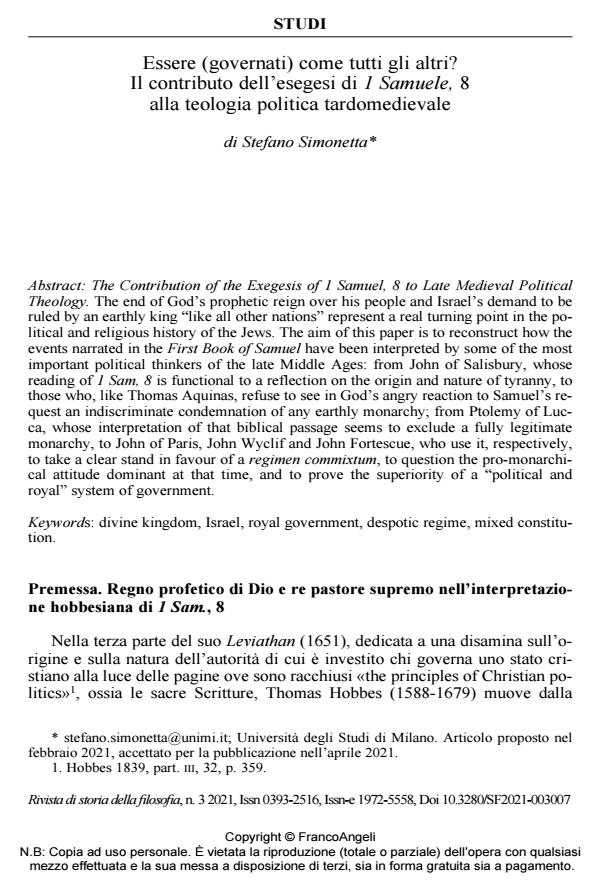The Contribution of the Exegesis of 1 Samuel, 8 to Late Medieval Political Theology.
Journal title RIVISTA DI STORIA DELLA FILOSOFIA
Author/s Stefano Simonetta
Publishing Year 2021 Issue 2021/3
Language Italian Pages 20 P. 491-510 File size 375 KB
DOI 10.3280/SF2021-003007
DOI is like a bar code for intellectual property: to have more infomation
click here
Below, you can see the article first page
If you want to buy this article in PDF format, you can do it, following the instructions to buy download credits

FrancoAngeli is member of Publishers International Linking Association, Inc (PILA), a not-for-profit association which run the CrossRef service enabling links to and from online scholarly content.
The end of God’s prophetic reign over his people and Israel’s demand to be ruled by an earthly king "like all other nations" represent a real turning point in the political and religious history of the Jews. The aim of this paper is to reconstruct how the events narrated in the First Book of Samuel have been interpreted by some of the most important political thinkers of the late Middle Ages: from John of Salisbury, whose reading of 1 Sam, 8 is functional to a reflection on the origin and nature of tyranny, to those who, like Thomas Aquinas, refuse to see in God’s angry reaction to Samuel’s request an indiscriminate condemnation of any earthly monarchy; from Ptolemy of Lucca, whose interpretation of that biblical passage seems to exclude a fully legitimate monarchy, to John of Paris, John Wyclif and John Fortescue, who use it, respectively, to take a clear stand in favour of a regimen commixtum, to question the pro-monarchical attitude dominant at that time, and to prove the superiority of a "political and royal" system of government.
Keywords: divine kingdom, Israel, royal government, despotic regime, mixed constitution.
Stefano Simonetta, Essere (governati) come tutti gli altri? Il contributo dell’esegesi di 1 Samuele, 8 alla teologia politica tardomedievale in "RIVISTA DI STORIA DELLA FILOSOFIA" 3/2021, pp 491-510, DOI: 10.3280/SF2021-003007